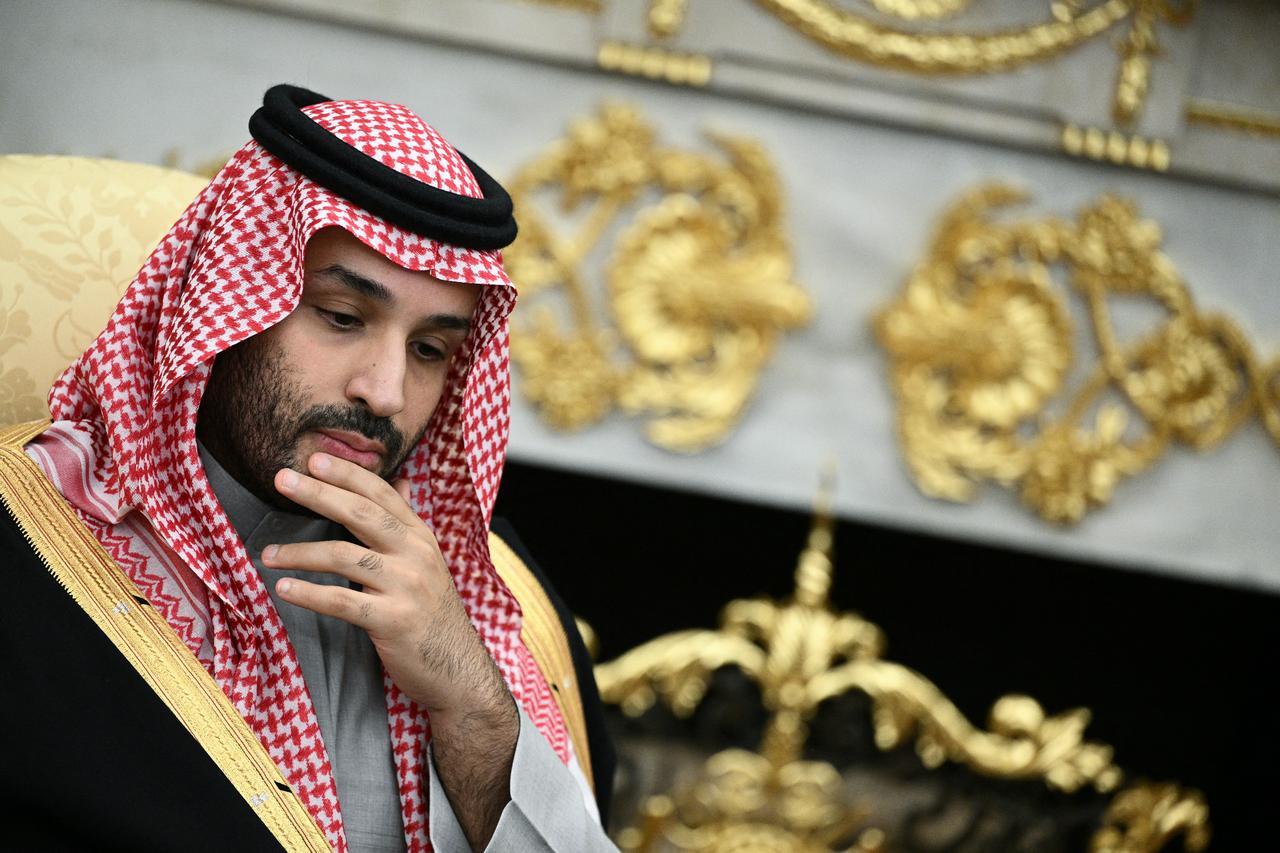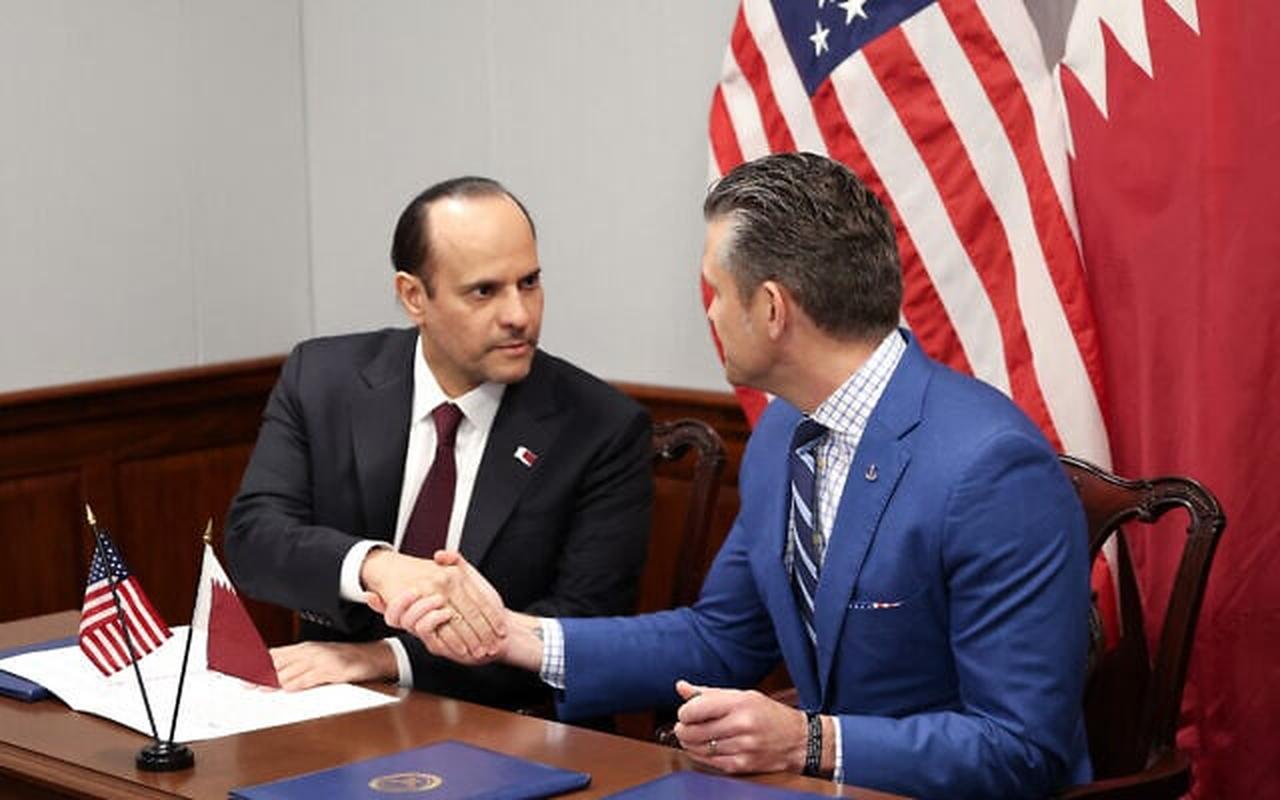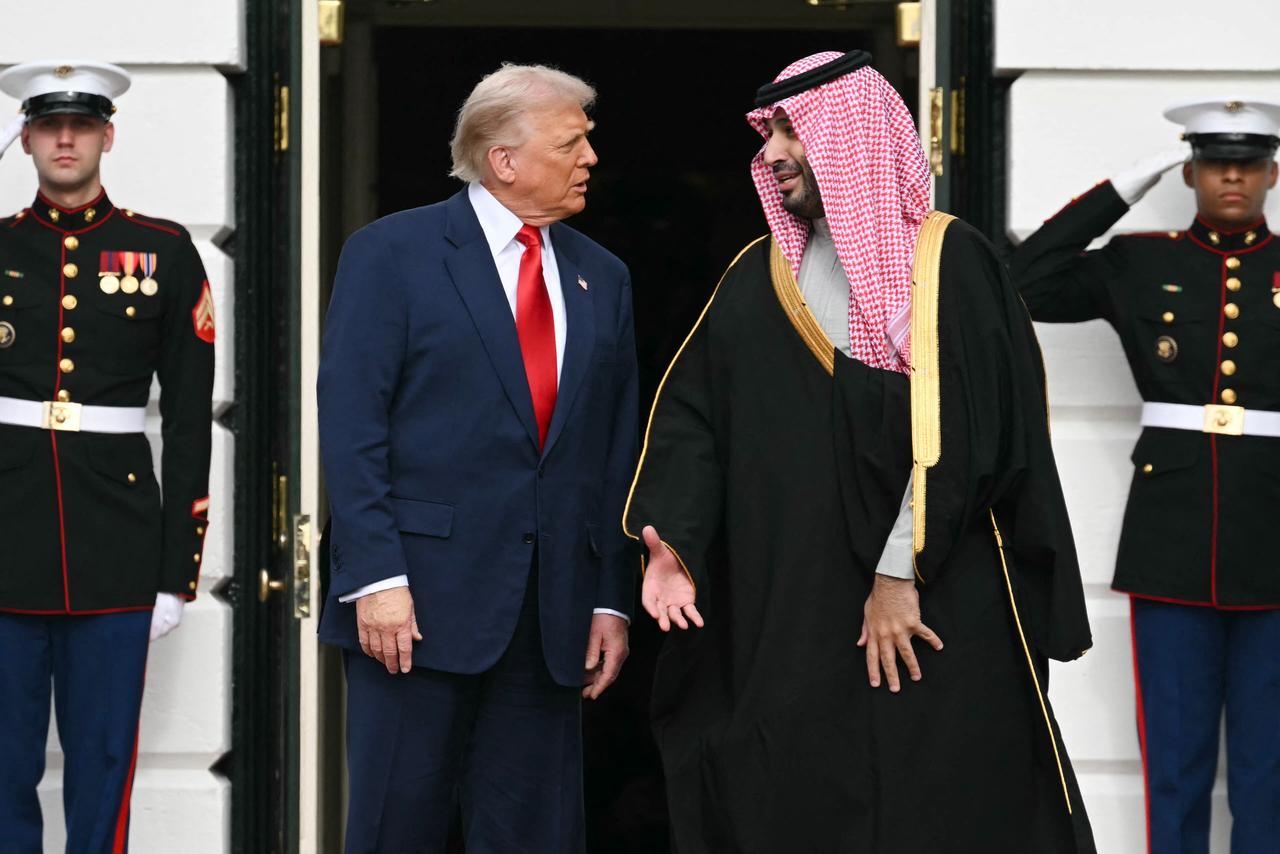
Saudi Arabia’s latest engagement with the United States reflects a broader Gulf trend: the leading states are seeking parallel security, technological, and economic privileges from Washington. Recent developments have reinforced Riyadh’s perception that its neighbors secured strategic advantages, prompting the kingdom to pursue similar commitments.
Saudi Arabia’s first man, Crown Prince Mohammed bin Salman's visit, is an indication of a regional competition for American guarantees.
Riyadh seeks to obtain the same high-level security guarantees, technological privileges, and political commitments that the United States has recently extended to other Gulf neighbors, namely the UAE and Qatar.
On Nov. 4, the U.S. and the UAE signed a memorandum of understanding to deepen cooperation on AI and energy, further solidifying Abu Dhabi’s role as Washington’s primary partner in the global AI race. Earlier in May, both countries announced a multimillion-dollar plan to build the largest AI campus outside the United States, equipped with advanced Nvidia chips and supported by an expansive network of domestic data centers. These developments accelerated the UAE’s emergence as a regional AI superpower.
Security guarantees have also shifted the regional balance. In October, President Donald Trump signed a sweeping executive order committing the United States to defend Qatar whether diplomatically, economically and militarily against any armed attack. The text states that Washington would treat aggression against the small but energy-rich state as a threat to the United States itself, an arrangement that resembles the core concept of NATO defense. The decision marked one of the strongest bilateral security guarantees ever granted to an Arab state outside NATO structures.
Riyadh sees these privileges as strategically decisive and believes similar access is essential to its own technological ambitions.

Doha now enjoys a level of American protection unmatched in the Gulf. Riyadh, long considered the U.S.’ anchor partner in the region, sees this as a signal that it must secure comparable commitments to maintain its strategic standing. The push for an F-35 package, nuclear cooperation, and a formalized security arrangement all stem from this recalibrated regional environment.
Top Saudi officials, aware of the optics surrounding Washington’s scaled-up ties with Qatar and the UAE, now view the crown prince’s visit as an opportunity to negotiate a comprehensive set of privileges that match or exceed those offered to its neighbors.
American officials, however, have signaled that any movement on defense cooperation is linked to progress on other issues, most notably the normalization track with Israel.
Saudi officials view advanced data centers, AI infrastructure, and technology transfer arrangements as critical for the kingdom’s post-oil economic transformation. The crown prince’s Washington trip aims to ensure that Saudi Arabia is not left behind as Abu Dhabi consolidates a lead in the region’s most consequential sector.
The Kingdom, on the other hand, is not just copying but also opening its own areas, the most important of which is the nuclear alliance, surely.
Saudi Arabia has long harbored concerns about Iran, and Iran's acquisition of nuclear weapons capability was the greatest of these concerns, along with Tehran’s proxies.
In 2023, the crown prince confirmed that Saudi Arabia would seek a nuclear arsenal if Iran were allowed to develop one.
This balancing factor, however, will certainly not appear suddenly.
While opinions within Washington differ on how far nuclear cooperation with Riyadh should go, the prospect of a regulated civilian nuclear framework certainly remains on the table.
For Saudi Arabia, nuclear technology is a strategic instrument tied to energy security, regional deterrence, and the nation’s broader modernization goals. A U.S.-Saudi nuclear pact would also represent a milestone by formalizing Washington’s willingness to support the kingdom in areas it has historically approached with caution.

Speculation about Saudi Arabia joining the Abraham Accords resurfaces regularly, but the political environment both in the region and in Washington makes normalization highly unlikely at this stage. Public opinion inside Saudi Arabia remains firmly opposed.
According to Aziz Alghasian, a lecturer of international relations at Naif Arab University of Security Sciences in Riyadh, the ongoing wars and regional instability have solidified perceptions of Israel as a security risk rather than a partner.
U.S. domestic politics adds another layer of difficulty. A treaty-level agreement linked to normalization would require Senate approval far beyond what is feasible. As a result, talk of Saudi Arabia joining the Abraham Accords is viewed in Riyadh as an attempt by figures within the Israeli leadership to stay relevant in discussions about broader regional deals.
The kingdom’s leadership also views its regional position through the lens of parity, particularly with the United Arab Emirates and Qatar, both of which secured unprecedented advantages from Washington over the past months.
Ultimately, Saudi Arabia views this week’s engagement in Washington less as a culmination than as a platform for future achievements. Riyadh seeks movement in partial agreements, formalized understandings, and clearer commitments that can be expanded over time.